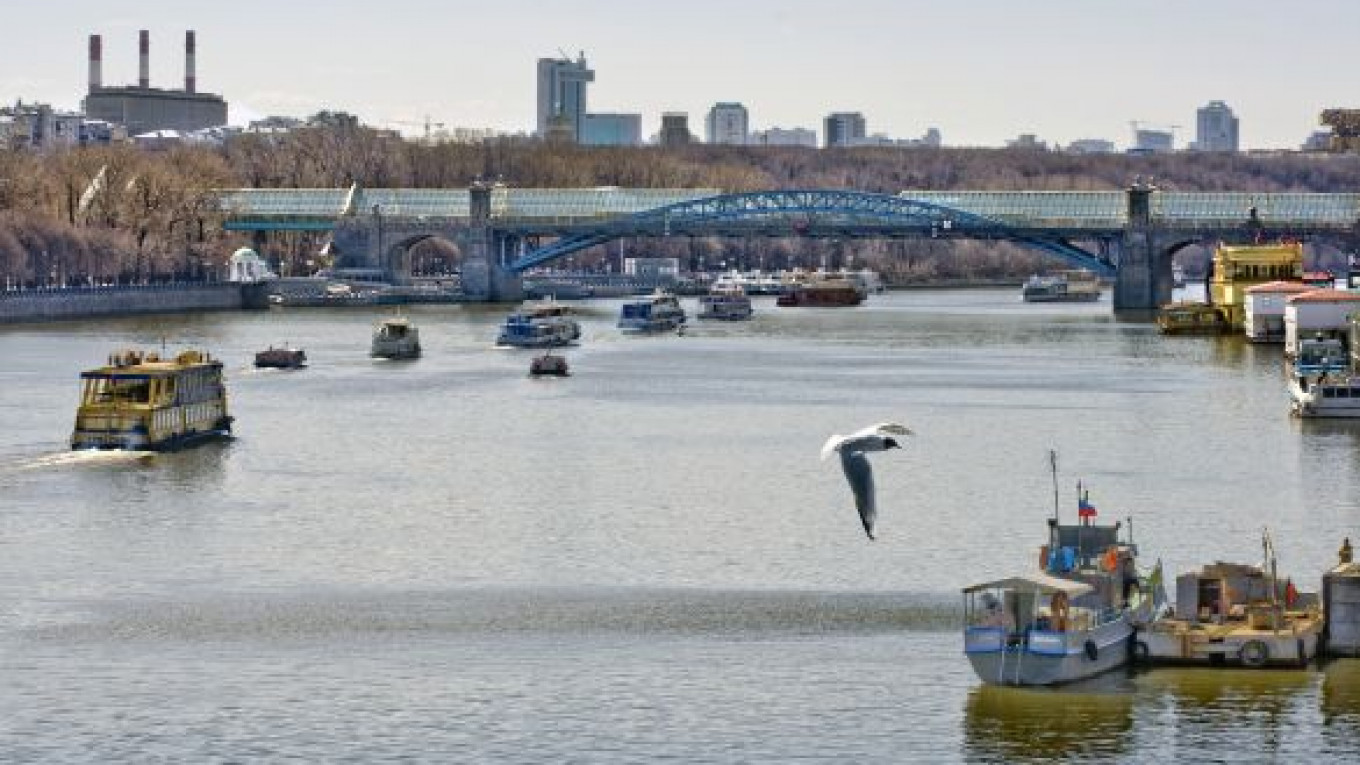Faulty paperwork, lack of staff and even counterfeit software are some of the things that endanger travelers on the country's waterways, prosecutors said Wednesday, following two river boat incidents that killed 131.
A check into the country's river fleet was ordered by President Dmitry Medvedev after the decrepit cruise ship Bulgaria overturned and sank on the Volga River last month, killing 122. In a separate incident last week, an overloaded motorboat rammed a barge and sank on the Moscow River downtown, killing nine.
The situation with the river fleet remains "complicated," the Prosecutor General's Office said in its report on the checks, on the agency's web site.
As a result of the check, more than 800 people were slapped with warnings or administrative punishments over various violations, some 550 of which were reported to courts, the report said.
Six criminal cases were launched, and another 20 are pending opening, which is to be done by various law enforcement agencies that the prosecutor general reported the violations to.
The 440-word report did not elaborate on the violations that were uncovered, beyond several specific examples, which included operating vessels that were undermanned or lacked safety equipment. In one instance in the Far East Federal District, 94 disabled orphans were transported on a ship that had only 13 life vests.
In St. Petersburg, the Nizhny Novgorod region and the republics of Tatarstan and Chuvashia, some vessels' owners were using counterfeit software, untranslated into Russian, the statement said.
An unspecified number of ships were certified for operation without mandatory regular inspections or despite various violations, the prosecutors added. Media reports claimed earlier that the Bulgaria was one such instance because it was allowed to sail despite a plethora of technical malfunctions.
There are also at least 700 vessels built more than 30 years ago that are in operation nationwide, the prosecutors said. The Bulgaria was built in 1955 and still has sister vessels operating in the country.
A spokeswoman for the Prosecutor General's Office said when reached by phone Wednesday that she "couldn't provide details on the issue" immediately. She also couldn't specify the number of violations found solely in Moscow.
There were 25,800 river vessels in the country as of January 2011, according to by the Russian River Register, a ship licensing body. The figure includes both passenger and cargo ships.
The prosecutors issued official reprimands to the Federal Transportation Inspection Service and the Russian River Register for poor control over the vessels and their conditions. Neither agency could be reached for comment Wednesday afternoon.
The Prosecutor General's Office has also requested that Transportation Minister Igor Levitin propose specific improvements to laws that will improve control over river vessels. Levitin did not comment Wednesday but said in late July that the problem was not lax legislation but lack of means to enforce it, Gazeta.ru .
A Message from The Moscow Times:
Dear readers,
We are facing unprecedented challenges. Russia's Prosecutor General's Office has designated The Moscow Times as an "undesirable" organization, criminalizing our work and putting our staff at risk of prosecution. This follows our earlier unjust labeling as a "foreign agent."
These actions are direct attempts to silence independent journalism in Russia. The authorities claim our work "discredits the decisions of the Russian leadership." We see things differently: we strive to provide accurate, unbiased reporting on Russia.
We, the journalists of The Moscow Times, refuse to be silenced. But to continue our work, we need your help.
Your support, no matter how small, makes a world of difference. If you can, please support us monthly starting from just $2. It's quick to set up, and every contribution makes a significant impact.
By supporting The Moscow Times, you're defending open, independent journalism in the face of repression. Thank you for standing with us.
Remind me later.






